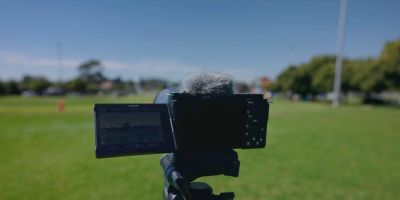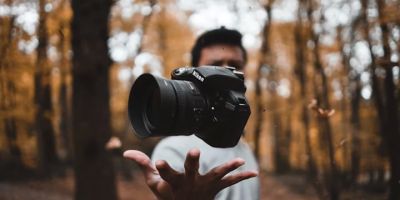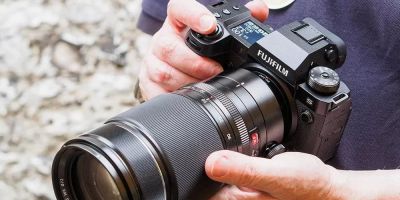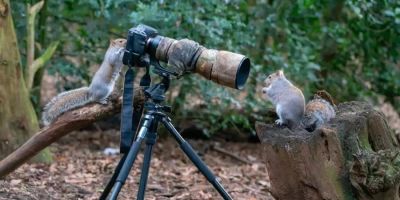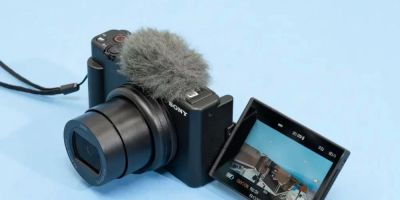Introduction: Why the Right Gear Matters for Commercial Shoots
When it comes to commercial photography, having the right equipment is absolutely crucial. Whether you're capturing products, events, or advertising content, the quality of your gear directly affects the outcome of your shoot. As a professional photographer, I’ve learned over the years that the right tools can make all the difference. In this article, I’ll guide you through some of the best photography equipment for commercial shoots, ensuring that you have the tools needed to create stunning images for your clients.
1. Cameras: The Heart of Every Commercial Shoot
For any commercial photographer, choosing the right camera is essential. It’s the foundation of your equipment setup, and it influences how your photos will turn out. After years of experimenting with different models, I’ve found that two major factors need to be prioritized when selecting a camera for commercial shoots: resolution and dynamic range.
1.1 Canon EOS 5D Mark IV: A Reliable Workhorse
The Canon EOS 5D Mark IV remains a top choice for many commercial photographers, especially for those working with product photography or high-end fashion shoots. With a 30.4-megapixel full-frame sensor, this camera offers excellent resolution and color accuracy, which is essential for commercial work. The autofocus system is precise, and the camera's ability to handle low light makes it versatile for any environment.
1.2 Sony A7R IV: A Game Changer for Detail
If you're looking for ultra-high resolution, the Sony A7R IV with its 61-megapixel full-frame sensor is a standout. This camera’s sharp detail makes it perfect for close-up product shots where clarity and texture matter. It’s also equipped with excellent autofocus and great performance in both daylight and studio lighting setups. If you’re shooting high-end products, real estate, or detailed imagery, this camera won’t let you down.
2. Lenses: Perfecting Every Shot
While a great camera is the foundation of a successful shoot, the lens you choose is just as important. Lenses can dramatically affect the composition, sharpness, and overall quality of your images. Below are some of the best lenses I recommend for commercial shoots, based on my experience in the field.
2.1 Canon RF 24-70mm f/2.8L IS USM: Versatility for Every Situation
The Canon RF 24-70mm f/2.8L is perfect for commercial shoots where versatility is key. Whether you're shooting portraits, food, or products, this lens provides sharp focus across a broad range of focal lengths. Its fast aperture allows you to achieve beautiful background blur, making it ideal for emphasizing subjects in various settings.
2.2 Sigma 50mm f/1.4 DG HSM Art: A Portrait Shooter's Dream
If you're working with portraiture, or need something to really isolate your subjects with incredible sharpness, the Sigma 50mm f/1.4 DG HSM Art is a must-have. The f/1.4 aperture gives you fantastic control over depth of field and creates that beautiful bokeh effect that makes portraits and fashion shots pop. Plus, the lens is renowned for its clarity and sharpness.
3. Lighting: Illuminate Your Shots Like a Pro
No matter how good your camera and lens are, lighting is still the key to making your images stand out. For commercial shoots, you’ll want to invest in high-quality lighting that gives you full control over shadows, highlights, and ambiance.
3.1 Profoto B10: Compact Power with Studio Quality
The Profoto B10 is a game changer for photographers who need to take their studio lighting on location. It's a portable strobe that delivers stunning light output, making it perfect for product photography, portraits, or any shoot where controlled lighting is crucial. Plus, its compact size makes it an ideal option for photographers who often travel.
3.2 Godox AD200 Pro: Affordable and Powerful
For photographers on a budget, the Godox AD200 Pro is an excellent alternative. This lighting unit provides powerful output with a very reasonable price tag. Whether you're using it as a main light or a fill light, it delivers beautiful, soft lighting that’s great for product and portrait photography alike.
4. Accessories: The Little Things That Make a Big Difference
Aside from cameras, lenses, and lights, the accessories you use during your commercial shoots are what will set you apart from the competition. There are several tools I consider indispensable for my shoots, and they can help you streamline your workflow, especially if you're working in fast-paced environments.
4.1 Light Modifiers: Softboxes and Diffusers
When it comes to shaping light for your shots, light modifiers are key. Softboxes and diffusers help soften the harsh shadows often created by flash or continuous lighting. I personally use the Westcott 36" Softbox, which helps create soft, flattering light that’s perfect for product shoots and portraits. It's portable, durable, and easy to set up on location.
4.2 Tripods: Stability Is Key
A sturdy tripod is essential, particularly if you’re shooting long exposure images or want to ensure your photos are sharp and steady. The Manfrotto 190XPRO3 is my go-to tripod for product photography and commercial shoots. It offers great stability and is built to last through rigorous shoots. Plus, the easy-to-use quick-release system makes it a time-saver when you need to get the perfect shot.
5. Post-Processing Software: Bringing Your Vision to Life
Even though the best equipment can help you capture incredible photos, post-processing software like Adobe Photoshop and Lightroom can bring your images to their full potential. From color correction to retouching, editing is a crucial part of any commercial photography workflow. I recommend spending time learning how to perfect your editing skills to truly showcase your work.
With the right equipment, lenses, lighting, and accessories, your commercial photography shoots can reach a level of professionalism that sets you apart in a crowded market. If you’re ready to elevate your photography, these tools are a great place to start, and don’t forget to keep refining your skills to match the quality of your equipment!

